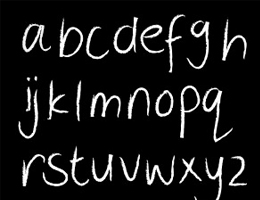
Article by Paul Fisher. First published in AdNews, May 18, 2012
Although I’m not a footballer or elite team sports player, I often read of top coaches newly appointed to rugby league or rugby union teams, the Australian cricket team and others. Months later we hear about the early signs of significant improvements in the team’s and individuals’ performances. When asked what they attribute the new found success to, players, coaches and staff alike nearly always state that it’s because the new coach stripped everything back to basics focusing on fitness, teamwork, positioning, determination, focus, basic skills and attitude.
I think all of us in this industry – brands, marketers, agencies both media and creative, media owners and technology providers would benefit from a similar, stripped back approach. I’m thinking this because viewable impressions has just popped up. It’s just the latest buzz in a growing list of technologies that are being developed to further enhance the effectiveness of online advertising. We’ve got the CTR; re-marketing; re-targeting; online behavioural advertising; contextual; geo-targeting; time-of-day adserving; demo targeting when you have age data; and location-based targeting when users enable their GPS. We’ve got above the fold; over the page and many other ‘super-rich’ media formats.
All this is great, but what about the basics? Sure, viewable impressions may well enhance the brand metrics and direct response performance of online display ads – though more research and larger samples are needed here – but this to me represents a more advanced tactic. To take my sporting analogy, you should only be looking at these advanced tactics when you have thoroughly reviewed the basics and revisited those skills and tactics to make sure your brand is competing on a solid foundation for growth. Then once your basics are in place and working, the more advanced tactics can be applied to secure a competitive edge and maximise the impact of every ad, every placement, every creative execution, and every campaign.
So perhaps we should be asking, almost in spite of the array of technologies on offer, how many campaigns online are frequency capped? How many agencies and brands have tracked the direct and indirect impact that online display advertising has on their paid and organic search campaigns? How many are tracking the impact their display and search ads are having on their social media communities and commentary – and vice versa? How many brands monitor the entry and exit points of their website audience and match those paths up with their other media activity?
And for the brands really trying to move more into online advertising, how many are briefing their creative agencies and allocating a decent budget to creating video content for the web audience, not just a web version of their TVC?
Some have really worked it out – notably Defence Force Recruiting who has embraced online advertising for years. It has created innovative campaigns such as online Battleship games, targeting the key youth demographic and in doing so (according to feedback I’ve heard) have had tremendous success in switching their media activity online to where their audience is spending most of their time. Yet the major industry sectors of FMCG, retail and the government each still make up only five to six percent of online general display advertising. And worse, I still see 30 second TVCs placed in the evening news trying to target young male drivers warning against the dangers of speeding and drink driving. That’s not where their audience lives.
Of course we are starting to see some of the major retailers use online advertising, even search and of course social media, and fewer still experimenting with mobile. For these retailers and indeed all sectors engaging with online advertising we would all do well if we all focused on some very appropriate words from Albert Einstein: “Everything should be made as simple as possible, but not simpler”.
As the online advertising challenges get more complex, our greatest challenge is simplicity. And in my mind, simplicity starts with the basics.